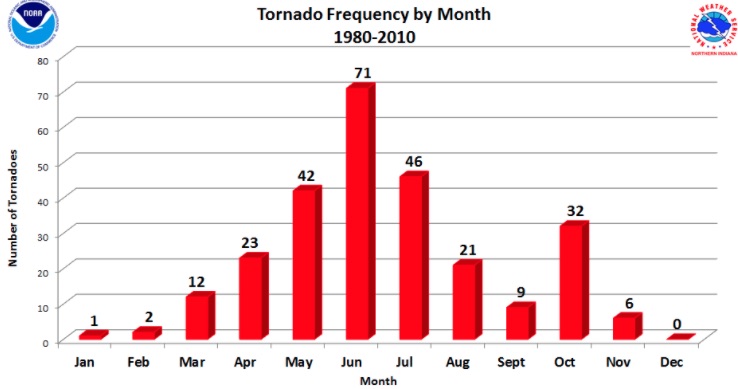Tornadoes are a natural disaster that can strike with devastating force, leaving destruction in their wake. For residents of Tennessee, it’s important to be aware of when tornado season occurs in order to be prepared and stay safe. So, when is tornado season in Tennessee? Let’s find out.
**Tornado season in Tennessee typically runs from March to May**, with the peak occurring in April. During this time, the conditions in the atmosphere are most favorable for the formation of tornadoes. Warm, moist air from the Gulf of Mexico clashes with cooler, drier air from the north, creating an unstable and volatile environment that is conducive to the development of severe storms.
**Springtime in Tennessee brings frequent thunderstorms**, often accompanied by high winds, hail, and heavy rain. These storms can produce tornadoes, which are characterized by a rotating column of air that extends from a thunderstorm cloud to the ground. Tornadoes can form rapidly and with little warning, making it essential to have a plan in place and be prepared.
The Role of Geography in Tornado Activity
Tennessee’s geographic location plays a significant role in its tornado activity. The state is part of what is commonly referred to as “Tornado Alley,” a region in the central United States that experiences a high frequency of tornadoes. The warm, moist air from the Gulf of Mexico collides with cooler air from the Rocky Mountains, creating the perfect conditions for severe weather.
Moreover, Tennessee lies within the “Dixie Alley,” a sub-region of Tornado Alley that stretches across the southeastern United States. Dixie Alley is known for its elevated risk of tornadoes, particularly during the spring months. The volatile weather patterns and geographic features of the region contribute to the increased tornado activity in Tennessee.
Tornado Preparedness in Tennessee
Living in an area prone to tornadoes requires residents to take necessary precautions and have an established plan in place. Here are some key steps to follow for tornado preparedness:
1. Create a Plan
Having a well-thought-out plan is crucial for tornado preparedness. Ensure that all family members know what to do in case of a tornado warning, including where to seek shelter and how to stay informed about weather updates. Identify a safe location in your home, such as a basement or an interior room on the lowest level, away from windows.
2. Assemble an Emergency Kit
Prepare an emergency kit that includes essential items such as non-perishable food, water, a battery-powered or hand-crank radio, flashlights, extra batteries, a first aid kit, and any necessary medications. Keep the kit in an easily accessible location.
3. Stay Informed
Stay updated on the weather conditions by monitoring local news outlets, weather apps, and National Weather Service alerts. Have a reliable method of receiving weather warnings, such as a weather radio or smartphone alerts.
4. Practice Drills
Regularly conduct tornado drills with your family to ensure everyone knows what to do in an emergency. Practicing these drills will help reduce panic and increase readiness.
5. Secure Outdoor Items
Secure or bring indoors any outdoor items that could become dangerous projectiles in high winds. This includes patio furniture, toys, gardening tools, and other loose objects.
Frequently Asked Questions
Q: Are tornadoes common in Tennessee?
A: Yes, tornadoes are relatively common in Tennessee, especially during the spring months. The state’s geographic location and weather patterns contribute to the frequency of tornado activity.
Q: How does the terrain affect tornadoes in Tennessee?
A: Tennessee’s varied terrain, including mountains and valleys, can influence tornado behavior. Generally, tornadoes tend to be weaker and more short-lived in mountainous areas due to the disrupted airflow caused by the rugged landscape.
Q: Can tornadoes occur at night in Tennessee?
A: Yes, tornadoes can occur at any time of the day or night. It’s important to have a reliable method of receiving weather alerts, even while you’re asleep, to ensure you can take appropriate action in the event of a tornado warning.
Q: What is the difference between a tornado watch and a tornado warning?
A: A tornado watch means that weather conditions are favorable for the formation of tornadoes. It is a warning to be prepared and stay informed. A tornado warning, on the other hand, means that a tornado has been sighted or indicated by weather radar, and immediate action should be taken to seek shelter.
Final Thoughts
Tornado season in Tennessee brings with it the potential for severe weather and storms that can spawn tornadoes. By being prepared, staying informed, and having a plan in place, you can help protect yourself, your family, and your property. Remember, it’s essential to take tornado warnings seriously and seek shelter immediately. Stay safe and be prepared throughout tornado season and beyond.
